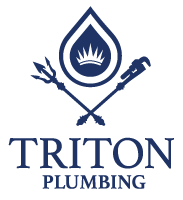How to Prevent (and Fix) Frozen Pipes
/The winter months are closing in, and you may be at risk of frozen pipes. This is common each year as fall fades away and the colder weather moves in. At Triton Plumbing, we want to help you to prevent the problem before it even occurs. Below you will find many tips to prevent frozen pipes and what to do if it does occur.
How to Prevent Frozen Pipes:
As colder weather closes in, drain the pipes that are likely to freeze. This can include a swimming pool, sprinkler lines, or any pipe exposed to cold weather.
Disconnect hoses from the home, drain the hose and close the indoor valves supplying outdoor access points.
Allow your faucets to drip water on the coldest days. The constant circulation and movement of the water will make it harder to freeze.
Ensure that your thermostat is at the same temperature day and night. Never let it get below 55 degrees Fahrenheit.
In the area that has the potential to freeze, place a 60-watt bulb over the area and ensure there are no combustible materials near the light bulb.
Ensure proper seals on all windows and doors.
At Triton Plumbing, we understand that frozen pipes can seem like a small thing. But, if a pipe does burst, it can cost individuals several thousand dollars in repairs due to water damage and flooding. This can become a reality for many consumers as winter months close in, and they ignore preventative actions for frozen pipes.
How to Fix Frozen Pipes:
First and most importantly, if you believe you have a frozen pipe inside a wall, CALL A PROFESSIONAL. This can be a serious situation and may involve cutting a hole in the wall toward the inside of the house to expose pipes to warmer air.
Keep your faucet open. When keeping the faucet open, you allow water to move freely and create steam in the frozen pipes. This allows the water to discharge throughout the thawing process, getting rid of the water stuck in the frozen pipes.
Know what NOT to do. Using a blow torch, propane, or kerosene heater is too much for a frozen pipe situation and could present unnecessary danger. To heat, you need a heating pad, hair dryer or a towel soaked in hot water. It may take slightly longer, but will get you to the same result.
Check all faucets for frozen pipes. If you fix one frozen pipe, there could be others. Take the time to check all faucets to ensure all areas are running smoothly.
Here at Triton Plumbing, we want to provide the information necessary to prevent a problem before it occurs. But, if you find yourselves with frozen pipes and the tips above do not work. Please call Triton Plumbing at: 248-520-0322 or email us at contact@tritonplumbingllc.com. We would love to help.


